Share
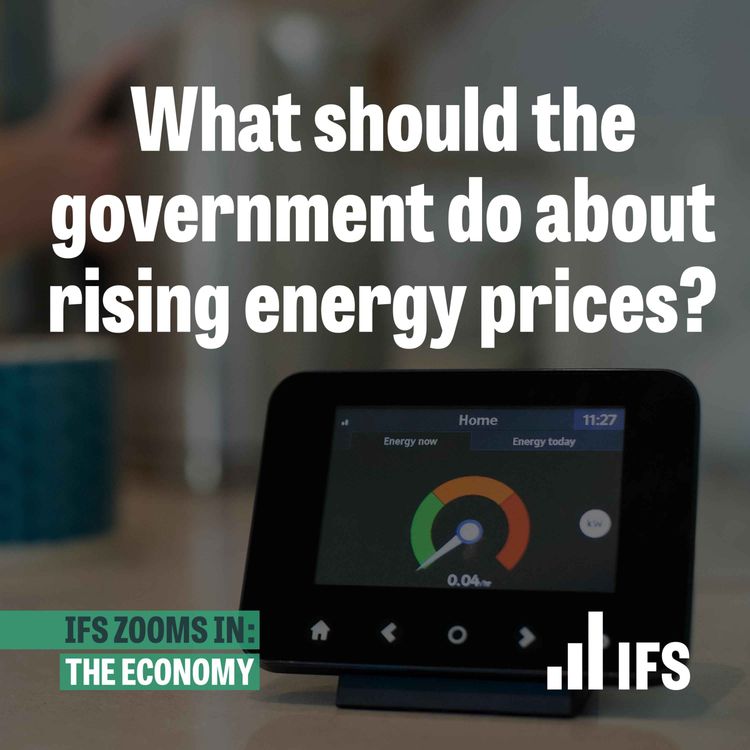
IFS Zooms In: The Economy
What should the government do about rising energy prices?
Season 3, Ep. 2
•
The UK is engulfed in a cost of living crisis, from rising inflation to flat-lining wages and incoming tax rises. In addition, energy prices are set to rise steeply, affecting households up and down the country and especially those on lower incomes.
This week, we're joined by Giles Wilkes a senior fellow at the Institute for Government and former special adviser to Theresa May on industrial and economic policy, and Stuart Adam, a Senior Economist at IFS who focuses on the design of the tax and benefit system, to understand why energy prices are rising, and think about what the government can do to bring down prices and help households.
Support the IFS: https://ifs.org.uk/donate
More episodes
View all episodes
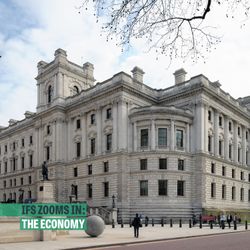
5. Spring Statement 2025
37:10||Season 6, Ep. 5This week, we look at the Spring Statement. What were the decisions and trade-offs made by Chancellor Reeves? To pick this apart, IFS Director Paul Johnson is joined by IFS Associate Directors Ben Zaranko and Tom Waters.Become a member: https://ifs.org.uk/individual-membershipFind out more: https://ifs.org.uk/podcasts-explainers-and-calculators/podcasts
4. The Schools Bill
46:36||Season 6, Ep. 4This week, we’re looking at The Schools Bill. The bill, which has the full title of The Children’s Wellbeing and Schools Bill 2024-25, covers children’s social care and education. The aim of the bill, as stated on the House of Commons Library website, is to “improve the safeguarding of children and to raise educational standards”. We’re going to be focusing on the schools components. To look at this, IFS Director Paul Johnson is joined by Laura McInerney and Luke Sibieta. Laura was the founding editor of Schools Week and now co-runs Teacher Tapp, a regular online survey of teachers. Luke is a Research Fellow at The IFS specialising in Education. Become a member: https://ifs.org.uk/individual-membershipFind out more: https://ifs.org.uk/podcasts-explainers-and-calculators/podcasts
3. Family values: inheritance, inequality and social mobility
49:48||Season 6, Ep. 3As baby boomers hold an increasing share of wealth, younger generations are finding it harder to build financial security, often relying on family support for major milestones like homeownership.In her book Inheritocracy, Eliza Filby argues that – because of this – baby boomers have been good parents but not always great citizens.To explore the issue, IFS Director Paul Johnson is joined by Eliza and David Sturrock, a Senior Research Economist at the IFS.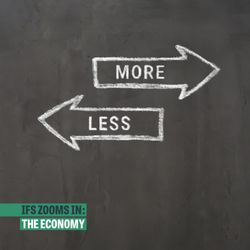
2. How important is the OBR forecast?
55:00||Season 6, Ep. 2As the OBR comes up with its forecast, which will underpin the Chancellor’s decisions at the Spring Forecast, one of the concerns may be that it tells her that she is not meeting her fiscal targets. That will require some action. Helping Paul explore this are Andy King and Gerard Lyons. Andy previously worked at the OBR and is now a Specialist Partner at Flint Global. Gerard has spent over thirty years in senior roles in the City and in public policy. He is currently Chief Economic Strategist at Netwealth. Become a member: https://ifs.org.uk/individual-membershipFind out more: https://ifs.org.uk/podcasts-explainers-and-calculators/podcasts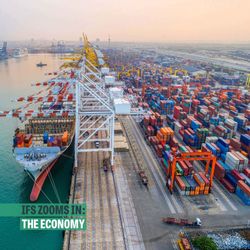
1. Do tariffs work?
37:52||Season 6, Ep. 1This week, President Trump was inaugurated for his second term and announced plans to impose significant tariffs on imports. But what exactly are tariffs, and how do they work? In this episode, we dive into the economic consequences of tariffs, why governments use them, and whether they actually achieve their intended goals.Joining Paul to unpack these questions is Peter Levell, Deputy Research Director at the Institute for Fiscal Studies (IFS) and an expert on trade economics.Become a member: https://ifs.org.uk/individual-membershipFind out more: https://ifs.org.uk/podcasts-explainers-and-calculators/podcasts
35. How is tax damaging the housing market?
37:47||Season 5, Ep. 35The UK’s housing market has long been a source of frustration for renters and homeowners alike, with issues of affordability and availability topping the agenda. The new government has identified housing market failures as a major barrier to economic growth—but what role does the tax system play in these challenges?In this episode, we’ll dig into how taxes impact the housing market, from the cost of buying and renting to the incentives—or disincentives—they create for landlords, developers, and homeowners. We’ll explore everything from capital gains tax to stamp duty surcharges and council tax policies. Are these tax measures helping or hindering progress? And if reform is needed, where should policymakers begin?To help answer those questions, Paul is joined by Stuart Adam, Senior Economist at IFS and Tim Leunig, economist at the London School of Economics and former Economic Advisor to Sajid Javid and Rishi Sunak.Become a member: https://ifs.org.uk/individual-membershipFind out more: https://ifs.org.uk/podcasts-explainers-and-calculators/podcasts
34. Why did the French budget fail to pass?
39:57||Season 5, Ep. 34Today, we’re turning our attention to France, where a recent Budget has sparked intense debate and raised major questions about the country’s economic future.France is tackling some big economic challenges: rising public debt, slow growth, and the need for major reforms in areas like pensions and energy. In this episode, we’ll explore what was in the budget, why it caused such a stir, and how it compares to the recent UK budget.To help us make sense of it all, we're thrilled to welcome Dr. Antoine Bozio, Director of the Institut des Politiques Publiques in Paris.Become a member: https://ifs.org.uk/individual-membershipFind out more: https://ifs.org.uk/podcasts-explainers-and-calculators/podcasts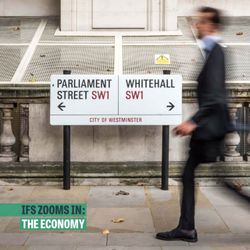
33. How can we make government more productive?
43:40||Season 5, Ep. 33From healthcare to education to local government, the public sector delivers essential services—but how can it stay effective and efficient with tightening budgets and rising demand?In this episode, we examine the UK government’s push to improve public sector productivity. Rachel Reeves is enlisting private sector leaders to tackle inefficiencies in Whitehall, while Wes Streeting has proposed NHS reforms to boost output. Meanwhile, across the Atlantic, President-elect Trump has stirred debate by appointing Elon Musk to a new ‘Department of Government Efficiency’ to slash costs. Are public services keeping pace with private sector innovations? What’s driving productivity trends in the UK? And how can policies create better outcomes for everyone?We’re joined by Ben Zaranko, Associate Director at IFS, and Sam Freedman, a senior fellow at the Institute for Government and former senior policy adviser to Michael Gove, to unpack these questions and more.Become a member: https://ifs.org.uk/individual-membershipFind out more: https://ifs.org.uk/podcasts-explainers-and-calculators/podcasts
32. Inheritance tax rises and the Budget: who's affected?
46:59||Season 5, Ep. 32In the recent budget, the Chancellor, Rachel Reeves, announced a £40 billion tax increase, pushing tax as a share of national income to an all time UK high.Just 6% of that came from an increase in inheritance tax, and just a small fraction of that will come from farmers. And yet it is the tax increase on farmers that has dominated the news headlines. But beyond the change to agricultural reliefs, there were some other big reforms as well - to pensions and business reliefs.So to discuss how inheritance tax actually changed in the budget, who will be affected and whether it was a good idea, Paul is joined by Helen Miller and David Sturrock, colleagues at the IFS.Become a member: https://ifs.org.uk/individual-membershipFind out more: https://ifs.org.uk/podcasts-explainers-and-calculators/podcasts